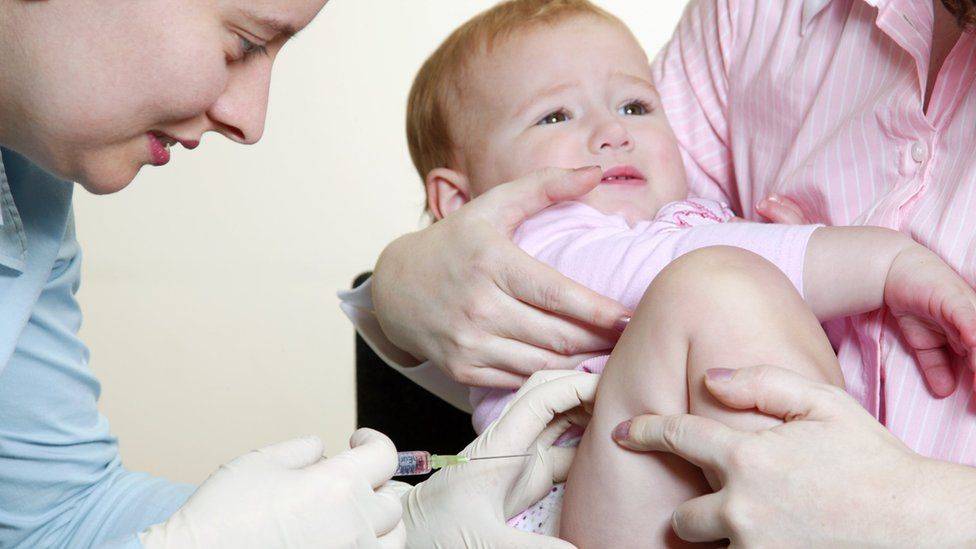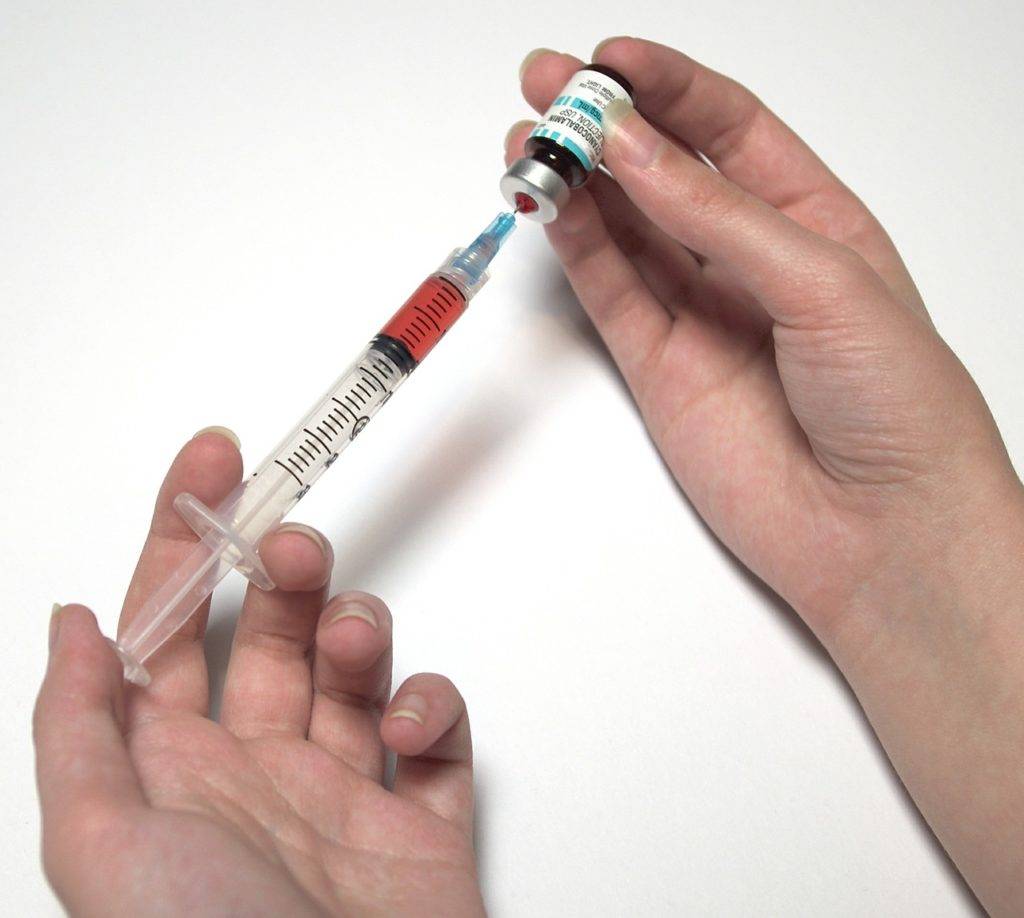Vaccination is one of the most significant public health achievements in history, saving countless lives by preventing the spread of infectious diseases.
Among the essential vaccines, the Measles, Mumps, and Rubella (MMR) vaccine stands out due to its critical role in safeguarding children and communities from three highly contagious and potentially severe diseases: measles, mumps, and rubella.
These diseases can cause serious complications, including pneumonia, encephalitis (inflammation of the brain), and deafness, and, in rare cases, can be deadly.
The MMR vaccine is very important because it helps to protect individuals and the community as a whole.
When a high percentage of the population is vaccinated against a disease, it can help to prevent outbreaks and protect those who are unable to receive the vaccine due to underlying medical conditions or a compromised immune system. This is known as herd immunity.
This blog post delves into the importance of the MMR vaccine and outlines the recommended ages for its administration.
Understanding Measles, Mumps, and Rubella

Measles
Measles is a highly contagious respiratory disease caused by a virus. It’s spread through the air when an infected person coughs or sneezes and can live on surfaces for up to two hours. The virus can be serious, especially for young children and those with compromised immune systems.
Symptoms of measles include high fever, cough, runny nose, and a distinctive red rash on the face and body. Measles can also cause serious complications such as pneumonia, encephalitis (inflammation of the brain), and death.
Before the introduction of the measles vaccine, major outbreaks were common, causing significant morbidity and mortality, especially in young children.
Mumps
Mumps is another infectious disease caused by a virus that primarily causes painful swelling of the salivary glands. It’s spread through saliva and respiratory droplets and can be transmitted through close contact with an infected person or through contaminated objects such as cups and utensils.
Mumps can cause outbreaks, particularly in close-contact settings like schools and colleges It causes fever, headache, muscle aches, and swollen salivary glands. It can also cause serious complications such as meningitis, encephalitis, deafness, and orchitis (inflammation of the testicles) in males, which can lead to infertility.
Rubella
Rubella, also known as German measles, is a viral infection that’s self-limiting and presents as a mild illness with a rash, fever, and swollen lymph nodes. It’s highly contagious and can spread rapidly in unvaccinated populations.
However, it poses a severe threat to pregnant women, as infection during pregnancy can result in miscarriage, stillbirth, or congenital rubella syndrome (CRS), leading to serious birth defects such as heart problems, developmental delays, and hearing and vision loss.
In the United States, the MMR vaccine has been very successful in preventing these diseases. Before the vaccine was introduced in 1963, measles outbreaks occurred regularly, with hundreds of thousands of cases reported each year.
The number of cases has significantly decreased since the vaccine was introduced, and large outbreaks are now rare.
The MMR Vaccine: A Critical Tool for Disease Prevention
History and Development
The MMR vaccine was developed to protect against these three diseases simultaneously. Introduced in the late 1960s and early 1970s, it combined the individual vaccines for measles, mumps, and rubella into a single shot.
This combination made vaccination more convenient and increased vaccine coverage rates, contributing significantly to the decline of these diseases globally.
Working Mechanism
The MMR vaccine contains live, attenuated (weakened) viruses that stimulate the immune system to produce a response without causing full-blown diseases. This immune response generates memory cells, which remain in the body and provide long-term protection.
If the vaccinated individual is later exposed to the actual viruses, their immune system can quickly recognize and fight off the infection, preventing illness.
The Importance of the MMR Vaccine
1. Preventing Disease Outbreaks
The primary importance of the MMR vaccine lies in its ability to prevent outbreaks of measles, mumps, and rubella. High vaccination coverage creates herd immunity, making it difficult for these viruses to spread within communities.
This protection is crucial for those who can’t vaccinated, such as infants under one year old and individuals with certain medical conditions.
2. Protecting Vulnerable Populations
Vaccination protects the individual receiving the vaccine and helps safeguard vulnerable populations. Infants, pregnant women, and individuals with compromised immune systems rely on herd immunity to stay protected from these potentially life-threatening diseases. The MMR vaccine is a critical component of this protective barrier.
3. Avoiding Complications and Long-Term Health Issues
Measles, mumps, and rubella can lead to severe complications and long-term health problems. Vaccination prevents these diseases and their associated complications, ensuring healthier futures for children.
Measles can cause encephalitis, which can result in permanent brain damage. Mumps can lead to hearing loss and, in some cases, infertility. Rubella infection during pregnancy can cause congenital rubella syndrome, leading to lifelong disabilities.
4. Cost-Effectiveness
Preventing diseases through vaccination is far more cost-effective than treating them and managing their complications. The associated healthcare costs of hospitalizations, treatments, and long-term care for complications are substantial. The MMR vaccine reduces these financial burdens on families and healthcare systems.
5. Global Health and Eradication Efforts
Vaccination is a cornerstone of global health initiatives aimed at controlling and potentially eradicating measles, mumps, and rubella. The World Health Organization (WHO) and other health organizations strive to increase vaccination coverage worldwide to eliminate these diseases.
High vaccination rates in individual countries contribute to the broader goal of global eradication, protecting people across borders.
Recommended Ages for MMR Vaccination

The MMR vaccine is typically administered in two doses to ensure optimal protection. Follow the recommended schedule to ensure that your child is fully protected against these diseases. Here are the recommended ages for vaccination:
First Dose: 12-15 Months
The first dose is usually given to children between 12 and 15 months of age. This timing ensures that infants receive the vaccine soon after maternal antibodies wane, which might interfere with the vaccine’s effectiveness if administered earlier.
The first dose provides a high level of immunity, but a second dose is necessary to ensure full protection.
Second Dose: 4-6 Years
The second dose is administered between the ages of 4 and 6 years, often in conjunction with other routine childhood vaccinations. This booster dose is crucial for reinforcing immunity and ensuring long-term protection.
Some children may not respond fully to the first dose, so the second dose helps to catch those who didn’t develop sufficient immunity initially.
Special Considerations and Catch-Up Vaccination
Catch-Up Vaccination
If a child or adolescent has not received the MMR vaccine according to the recommended schedule, catch-up vaccination is essential. Unvaccinated or partially vaccinated individuals are at risk of contracting and spreading these diseases.
Catch-up vaccination can be done at any age, and healthcare providers provide guidance on the appropriate timing.
Adults and the MMR Vaccine

Adults who didn’t receive the MMR vaccine as children or who lack immunity to measles, mumps, or rubella should also get vaccinated. This is particularly important for women of childbearing age, healthcare workers, and individuals planning to travel internationally.
Ensuring immunity in adults helps prevent outbreaks and protects vulnerable populations.
Addressing Vaccine Hesitancy
Despite the proven safety and effectiveness of the MMR vaccine, vaccine hesitancy remains a significant challenge. Misinformation, fear of side effects, and distrust in healthcare systems contribute to reluctance or refusal to vaccinate.
It is crucial to address these concerns through education, clear communication, and community engagement.
1. Education and Awareness
Raising awareness about the benefits and risks of measles, mumps, and rubella is vital. Educational campaigns can dispel myths, provide accurate information, and highlight the success stories of vaccination in preventing outbreaks and saving lives.
2. Engaging Healthcare Providers
Healthcare providers play a crucial role in encouraging vaccination. They build trust with patients, address concerns, and provide evidence-based information. Personalized discussions between healthcare providers and parents can significantly influence vaccine acceptance.
3. Community Involvement
Community leaders, influencers, and organizations can also contribute to promoting vaccination. By working together, communities can create a supportive environment for vaccination, making it a social norm and ensuring higher vaccination rates.
Ensure Your Child Gets MMR Shots on Time
The MMR vaccine is a vital tool in the fight against measles, mumps, and rubella. Its importance cannot be overstated, as it prevents outbreaks, protects vulnerable populations, avoids severe complications, and supports global health efforts.
Ensuring that children receive the MMR vaccine at the recommended ages of 12–15 months and 4-6 years is essential for individual and public health. By addressing vaccine hesitancy and promoting the benefits of vaccination, we can continue to protect our children and communities from these preventable diseases.
Ensure your child gets the proper dose of MMR vaccine on time. Reach out to Omega Pediatrics at Roswell, Georgia. They have a complete line of vaccinations for children. Let us embrace the power of vaccination and work together to create a healthier future for all.



